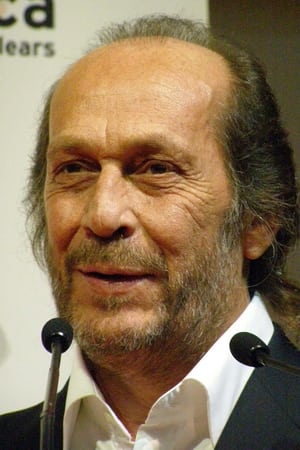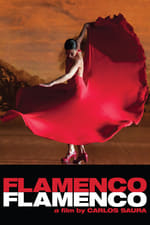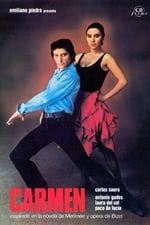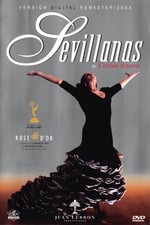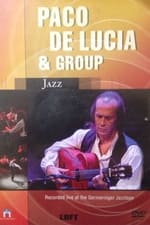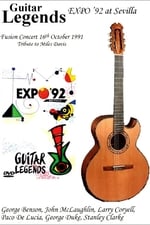Informations personnelles
Célèbre pour Interprétation
Apparitions connues 25
Genre Homme
Date de naissance 21 décembre 1947
Date de décès 25 février 2014 (66 ans)
Lieu de naissance Algeciras, Cadiz, Spain
Alias
- Francisco Sánchez Gómez
Score de contenu
100
Superbe ! Cette fiche semble complète !
Connectez-vous afin de
signaler un problème.
Biographie
Francisco Sánchez Gómez (21 December 1947 – 25 February 2014), known as Paco de Lucía, was a Spanish virtuoso flamenco guitarist, composer, and record producer. A leading proponent of the new flamenco style, he was one of the first flamenco guitarists to branch into classical and jazz. Richard Chapman and Eric Clapton, authors of Guitar: Music, History, Players, describe de Lucía as a "titanic figure in the world of flamenco guitar", and Dennis Koster, author of Guitar Atlas, Flamenco, has referred to de Lucía as "one of history's greatest guitarists".
De Lucía was noted for his fast and fluent picados (fingerstyle runs). A master of contrast, he often juxtaposed picados and rasgueados (flamenco strumming) with more sensitive playing and was known for adding abstract chords and scale tones to his compositions with jazz influences. These innovations saw him play a key role in the development of traditional flamenco and the evolution of new flamenco and Latin jazz fusion from the 1970s. He received acclaim for his recordings with flamenco singer Camarón de la Isla in the 1970s, recording ten albums which are considered some of the most important and influential in flamenco history.
Some of de Lucía's best known recordings include "Río Ancho" (later fused with Al Di Meola's "Mediterranean Sundance"), "Entre dos aguas", "La Barrosa", "Ímpetu", "Cepa Andaluza" and "Gloria al Niño Ricardo". His collaborations with guitarists John McLaughlin, Al Di Meola and Larry Coryell in the late 1970s saw him gain wider popularity outside his native Spain. De Lucía formed the Paco de Lucía Sextet in 1981 with his brothers, singer Pepe de Lucía and guitarist Ramón de Algeciras, and collaborated with jazz pianist Chick Corea on their 1990 album, Zyryab. In 1992, he performed live at Expo '92 in Seville and a year later on the Plaza Mayor in Madrid. He also collaborated with guitarist Juan d'Anyelica on his album Cositas Buenas. After 2004 he greatly reduced his public performances, retiring from full touring, and typically only gave several concerts a year, usually in Spain and Germany and at European festivals during the summer months.
Paco de Lucía was born on 21 December 1947 as Francisco Sánchez Gómez in Algeciras, province of Cádiz, in southern Spain. He was the youngest of the five children of flamenco guitarist Antonio Sánchez Pecino and Portuguese mother Lúcia Gomes; his brothers include flamenco singer Pepe de Lucía and flamenco guitarist Ramón de Algeciras (now deceased).
Playing in the streets as a young boy, there were many Pacos and Pablos in Algeciras. In Spain and Latin America, any of these children with common first names would be referred to as follows: '"Name of Child", (son or daughter) of "Name of Mother"', or "Paco (son) of Lucía" in his case, instead of using the child's last name. Later, after learning to play the guitar and tasked with figuring out a way to bill himself, wanting to honor his Portuguese mother Lucía Gomes, he adopted the stage name Paco de Lucía. ...
Source: Article "Paco de Lucía" from Wikipedia in English, licensed under CC-BY-SA 3.0.
Francisco Sánchez Gómez (21 December 1947 – 25 February 2014), known as Paco de Lucía, was a Spanish virtuoso flamenco guitarist, composer, and record producer. A leading proponent of the new flamenco style, he was one of the first flamenco guitarists to branch into classical and jazz. Richard Chapman and Eric Clapton, authors of Guitar: Music, History, Players, describe de Lucía as a "titanic figure in the world of flamenco guitar", and Dennis Koster, author of Guitar Atlas, Flamenco, has referred to de Lucía as "one of history's greatest guitarists".
De Lucía was noted for his fast and fluent picados (fingerstyle runs). A master of contrast, he often juxtaposed picados and rasgueados (flamenco strumming) with more sensitive playing and was known for adding abstract chords and scale tones to his compositions with jazz influences. These innovations saw him play a key role in the development of traditional flamenco and the evolution of new flamenco and Latin jazz fusion from the 1970s. He received acclaim for his recordings with flamenco singer Camarón de la Isla in the 1970s, recording ten albums which are considered some of the most important and influential in flamenco history.
Some of de Lucía's best known recordings include "Río Ancho" (later fused with Al Di Meola's "Mediterranean Sundance"), "Entre dos aguas", "La Barrosa", "Ímpetu", "Cepa Andaluza" and "Gloria al Niño Ricardo". His collaborations with guitarists John McLaughlin, Al Di Meola and Larry Coryell in the late 1970s saw him gain wider popularity outside his native Spain. De Lucía formed the Paco de Lucía Sextet in 1981 with his brothers, singer Pepe de Lucía and guitarist Ramón de Algeciras, and collaborated with jazz pianist Chick Corea on their 1990 album, Zyryab. In 1992, he performed live at Expo '92 in Seville and a year later on the Plaza Mayor in Madrid. He also collaborated with guitarist Juan d'Anyelica on his album Cositas Buenas. After 2004 he greatly reduced his public performances, retiring from full touring, and typically only gave several concerts a year, usually in Spain and Germany and at European festivals during the summer months.
Paco de Lucía was born on 21 December 1947 as Francisco Sánchez Gómez in Algeciras, province of Cádiz, in southern Spain. He was the youngest of the five children of flamenco guitarist Antonio Sánchez Pecino and Portuguese mother Lúcia Gomes; his brothers include flamenco singer Pepe de Lucía and flamenco guitarist Ramón de Algeciras (now deceased).
Playing in the streets as a young boy, there were many Pacos and Pablos in Algeciras. In Spain and Latin America, any of these children with common first names would be referred to as follows: '"Name of Child", (son or daughter) of "Name of Mother"', or "Paco (son) of Lucía" in his case, instead of using the child's last name. Later, after learning to play the guitar and tasked with figuring out a way to bill himself, wanting to honor his Portuguese mother Lucía Gomes, he adopted the stage name Paco de Lucía. ...
Source: Article "Paco de Lucía" from Wikipedia in English, licensed under CC-BY-SA 3.0.
Interprétation
Son
|
|||
|
|||
|
|||
|
